To the birthday of one of the brightest representatives of the Abkhaz Diaspora in Turkey, Omar Beyguaa, the WAC web information portal prepared an essay about this man who worked for the benefit of his historic homeland, sparing no effort.
Arifa Kapba
A Caucasian historian, linguist, publicist, poet, one of the brightest representatives of the Abkhaz Diaspora in Turkey ... Omar Beyguaa was born on July 1, 1901 in the village, which name in Turkish sounded like Yefteni Hadjis, and in the Abkhaz style, according to Beyguaa himself, the village was called “Ашәы Ҳаџьы иқыҭа” (translated from Abkhaz -“village of Ashuba Haji” - ed.) or “Ашәаа рқыҭа” (translated from the Abkhaz -“village of the Ashuba clan” - ed.). This place was part of Düzce (240 km west of Ankara - ed.).
Beyguaa was born and raised in Turkey, but he knew the history of his family in detail. Thus, in an interview with publicist and writer Dzhuma Akhuba, he says: “My father is Bairam. Father of Bairam - Hassan. Hassan's father - Madzh. Father of Madzh - Mamaguyl (great-great-grandfather of Omar Beyguaa - ed.) had brothers Sharmata and Satanei, who once even attacked the palace of princes Achba (Chachba)”.
Far from home, among relatives
Omar’s grandfather - Khasan left his native village behind the mountain Samata rkhu (Sukhum mountain), now Abzhakua, in the flow of forced migrants in 1877-1878. Today, the small homeland of Beygua, the village of Abzhakuka, is part of the Sukhum district of Abkhazia. Omar Beyguaa himself liked to call himself a “Sukhum Abkhaz”.
Thousands of Abkhaz evicted from Sukhum and its environs reached the Turkish coast by sea and landed in a place called Kefken. Four hundred people, weakened on the road, died immediately after arriving on foreign land. Among those who survived was Omar’s future father, Bairam Beyguaa, and a girl named Shamkha Mkyd.
They soon got married, and their son Omar was born.According to some reports, he was born in 1899, but Beyguaa calls 1901 the year of his birth.
Since his childhood, Little Omar had a sharp mind, was capable of languages. As one of the authoritative researchers of the life and work of Beyguaa, publicist Makhinur Papba (Tuna), “born among people who knew Abkhaz culture and language, spoke the purest, most beautiful, melodious Abkhaz language, he, thank God, learned this language from them”.
Noticing the boy’s ability to use languages, the Adyg general Rashid Effendi and his wife Kasibei Chanba, who compiled the Abkhaz alphabet based on the Old-Ottoman alphabet, attracted a twelve-year-old Omar Beyguaa to this activity. Since that time he has been engaged in research of the Abkhaz language, folklore, history all his life.
“He approached all dialects of the Abkhaz language, understood them, studied and researched, - writes Makhinur Papba. - Omar studied the etymology of the Abkhaz words, analyzed them: what they mean, how they happened, what words from other languages are consonant with.”
Omar Beyguaa studied at Düzce School, then entered one of the Turkish high schools, where he studied engineering and worked by profession until 1964, which did not prevent him from simultaneously actively engaging in Caucasian studies, learning Abkhaz language, folklore, history and many other subjects. As he says in an interview with Dzhuma Akhuba, he just slept very little: sometimes three hours a day, and sometimes he did not sleep at all.
Searches for “Abkhaz” materials
Omar Beyguaa is the author of a large number of works devoted to Abkhaz history and folklore. The fundamental work of the scholar was the two-volume work “Caucasian sources about the initial period of the origin of human civilization.” His other famous work is the book “Abkhaz mythology - is it the oldest?”. It was published in Istanbul in 1971 in Turkish. In general, all the main works of Beyguaa were published in Turkish, although he was fluent in addition to his native Abkhaz language, Arabic, Syriac, and Old Ottoman Turkish.
The scholar was devoted to Abkhaz culture, he enthusiastically studied languages, he studied folklore and folk customs with passion. “Beyguaa in his books asked such questions that no Abkhaz had asked him before, - Makhinur Papba notes - Is the Abkhaz language the oldest? Did the ancestors of the Abkhaz live during the time of the ancient Egyptians, the Mesopotamians, and the Greeks? ”
Omar Beyguaa also published an illustrative Abkhaz calendar, prepared for publication in three volumes the Abkhaz Etymological Dictionary and the Abkhaz Grammar.
According to the scientist and publicist Ruslan Gozhba, the works of Beyguaa over the years will be used many times by scientists, and they will be given the highest rating: they contain a lot of new and valuable information.
Makhinur Papba writes that a good knowledge of Arabic helped the scholar to obtain valuable historical materials. Omar Beyguaa came to Topkapi Palace (the main palace of the Ottoman Empire until the middle of the XIX century, turned into one of the largest museums in the world after the fall of the empire - ed.), and studied the archives of the Ottoman Empire, found materials relating to Abkhazia and the Caucasus, reshooted, and then processed them.
So he found the images of flags, which he later printed in Turkish magazines, and the seal of the VIII century - in the story about “Apskh Bata” (king of the Abkhaz Bata), written in Arabic.
Beyguaa was interested in material and all-Caucasian value, sought information on the Caucasus, in almanacs, bibliographies, dictionaries and anthropological reference books of Western and Eastern countries.
Poetry of an Abkhaz from Istanbul
Another passion of Omar Beyguaa was poetry. In an interview with Dzhuma Akhuba, he said that he began writing poetry at the age of fifteen. A collection of poems permeated by the longing of a man who was forever separated from his historic homeland was published by the “Alashara” Publishing House in 1990. This collection was called “The Voice of Abkhaz from Istanbul” and combined many poems of Omar Beyguaa written in his native Abkhaz language.
The poetic heritage of Omar Beyguaa is often compared with the motifs of the poetry of the patriarch of Abkhaz literature Dmitry Gulia. As well as Gulia, Beyguaa is close to folklore images and aesthetics, the main theme of his poems is longing for native places.
The value of the poetry of Omar Beyguaa is multiplied by the fact that he wrote poems in the Abkhaz language, which he loved immensely, and whose fate always disturbed him.
When the poet felt that his life was nearing its end, he wrote the lines in his native language, which he commanded to put on his gravestone: “Дыззыгуыкыз аҧсышәа ихчнызазааит наӡаӡа!” (translated from Abkhaz - “And let the Abkhaz language, about which he yearned, will serve him as an eternal headboard!” - ed.)
At home
In 1975, Beyguaa visited Abkhazia as part of a large delegation of representatives of the Abkhaz Diaspora in Turkey. He met with interest here with various public figures, scholars, writers, traveled to different towns and villages of the Republic, visited Lake Ritsa: according to him, those who did not see Ritsa could not say that they were in Abkhazia.
A visit to the historic homeland inspired Beyguaa very much. Full of strength and energy, he continued his creative activity for the benefit of his beloved Abkhazia.
At the same time, thoughts of imminent death, he said in an interview with Dzhuma Akhuba, made him think that there are many things that he would not like to take to the grave with him, so he hurried to write them down in his books.
In the same interview, he philosophizes, noting that the life of Abkhaz is always a series of tests: “Аԥсуа анцәа дишаны адәы дзықуиҵаз дԥишәаларц ауп, илԥха ҳамазааит, ҳашԥишәауа мацара ҳааиуеит” (translated from Abkhaz - “God created the Abkhaz to test them. May His grace always be with us! We are moving forward through His trials”- ed.).
In 1994, a meeting of Beyguaa with the national poet of Abkhazia Bagrat Shinkuba was held in Istanbul. This moment was captured by the journalists of the Abkhaz television and became a source of pride for all those who value the history and culture of Abkhazia. By the decree of the first president of Abkhazia, Vladislav Grigorievich Ardzinba, Omar Beyguaa was awarded the I degree Order of Akhdz-Apsha (Honor and Glory).
Omar Beyguaa died at the age of 99 in 2001, was buried in Istanbul, where he lived all his life. In 2013, in Sukhum, at the initiative of the State Committee for Repatriation, the Museum of the History of foreign Abkhaz named after Omar Beygua was opened. During his life, the scholar paid great attention to fixing the history of the Diaspora and wrote many biographies of its most prominent representatives.
References:
• Makhinur Papba “Talking About Omar Beyguaa”
• Abkhaz biographical dictionary
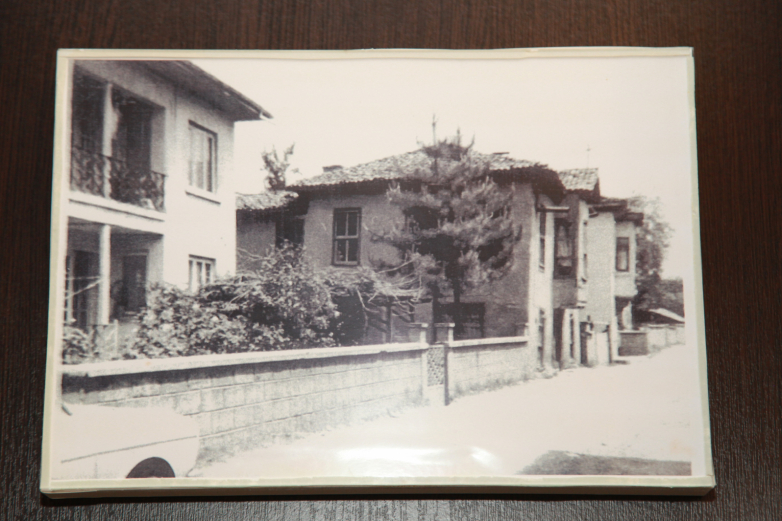
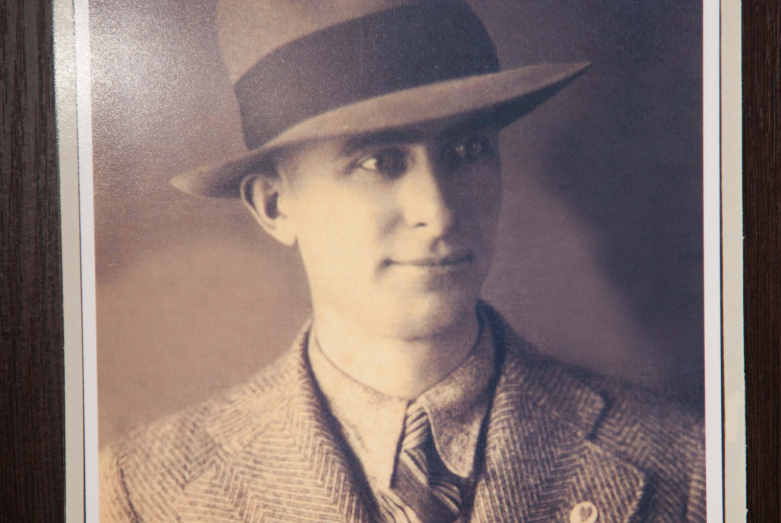
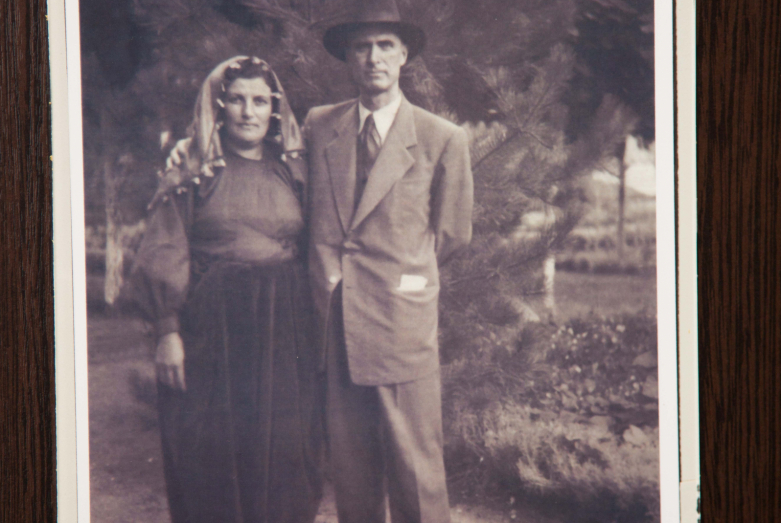
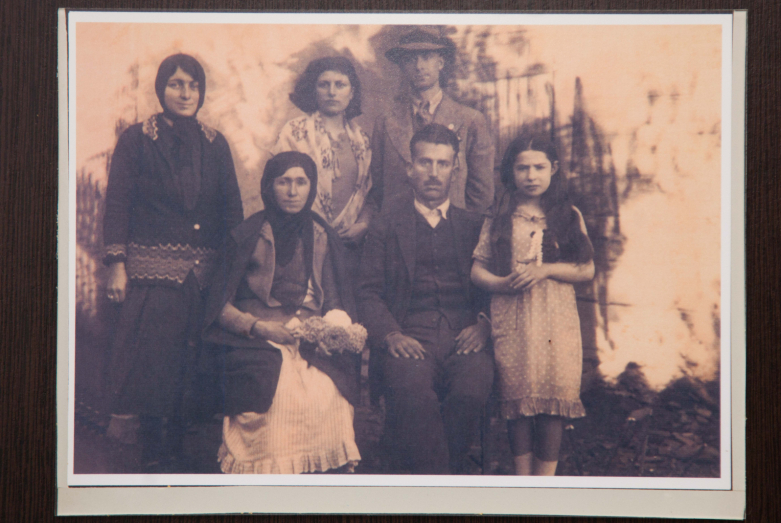
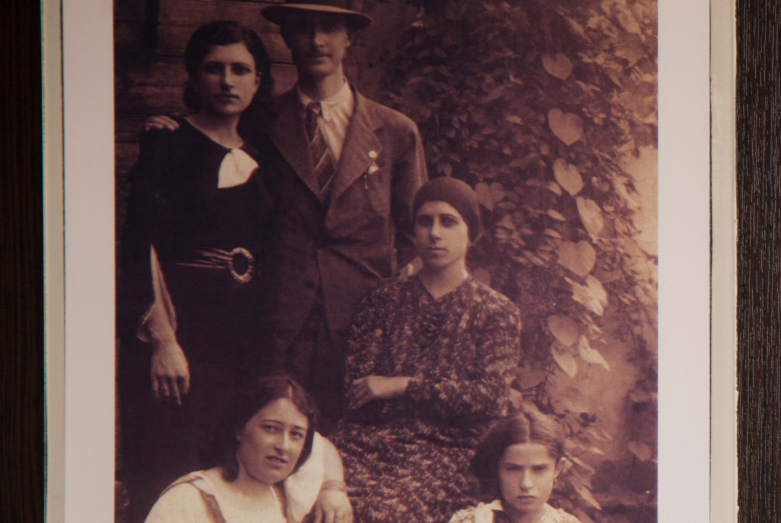
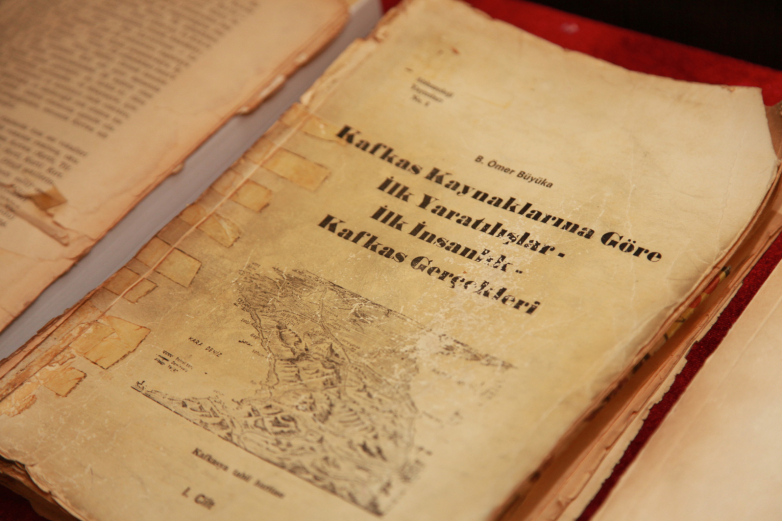
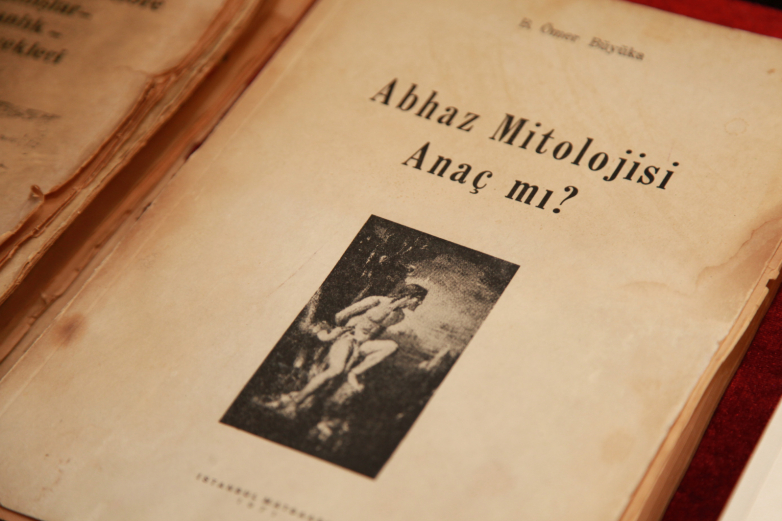
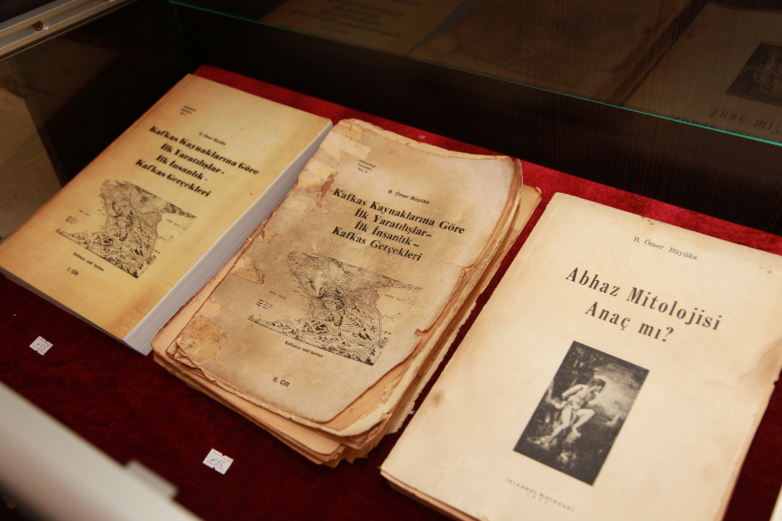
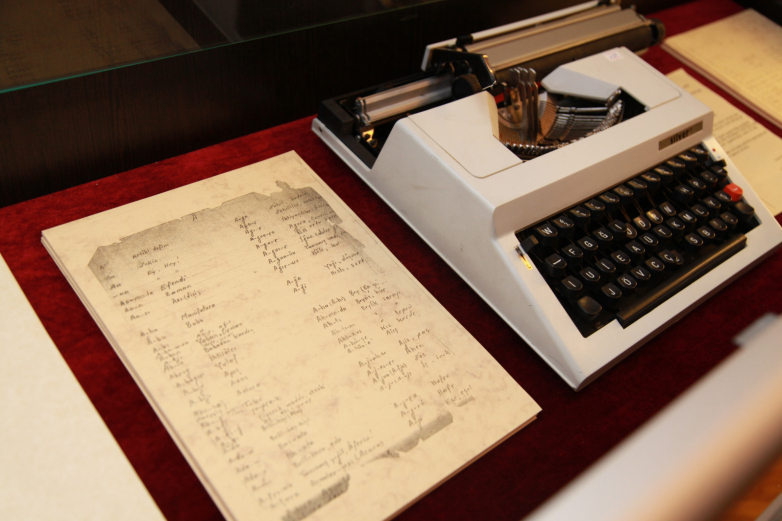
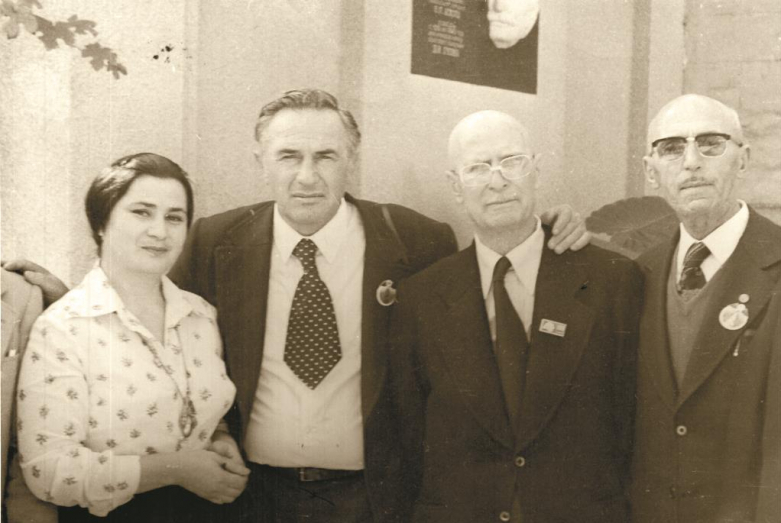
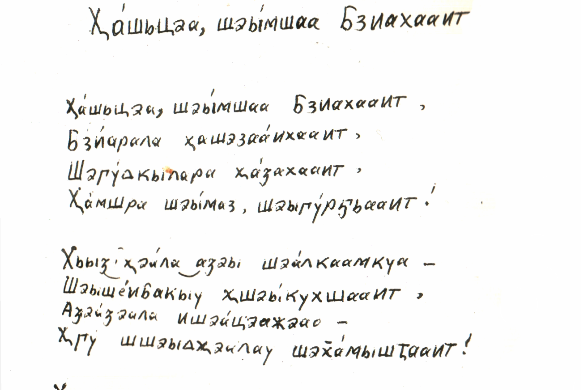
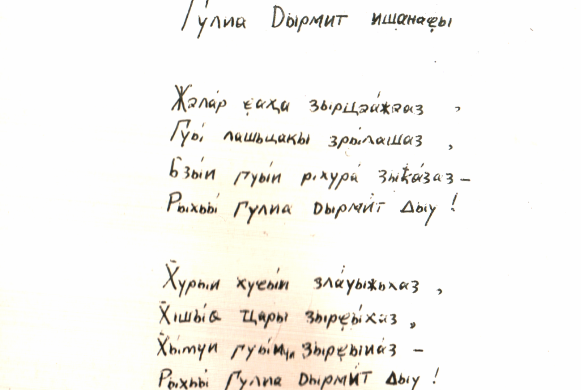
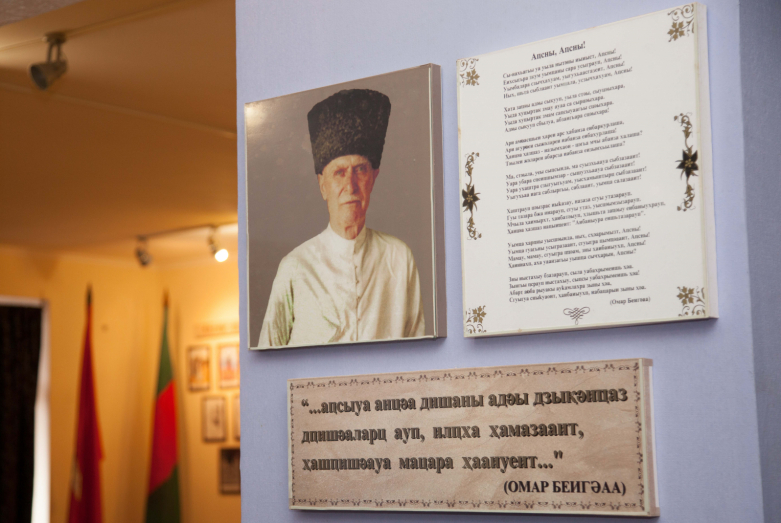
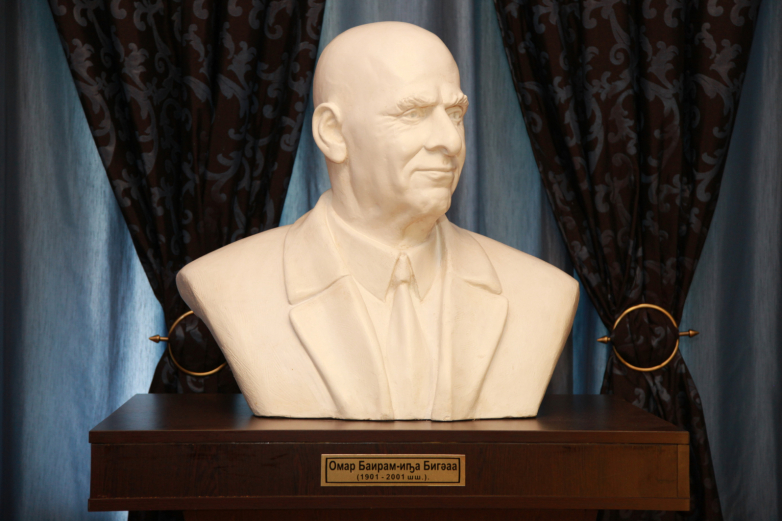
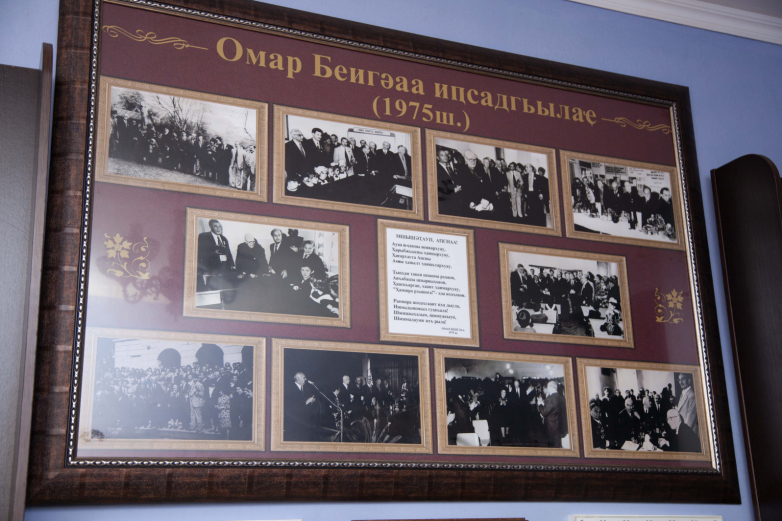
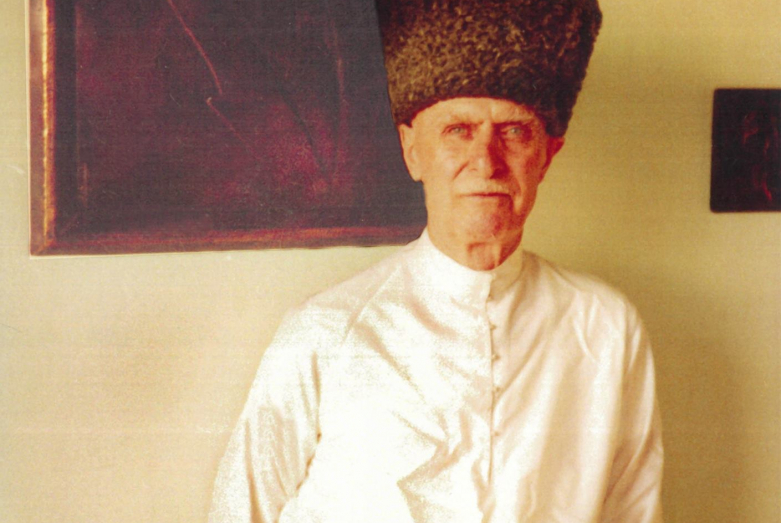
to login or register.